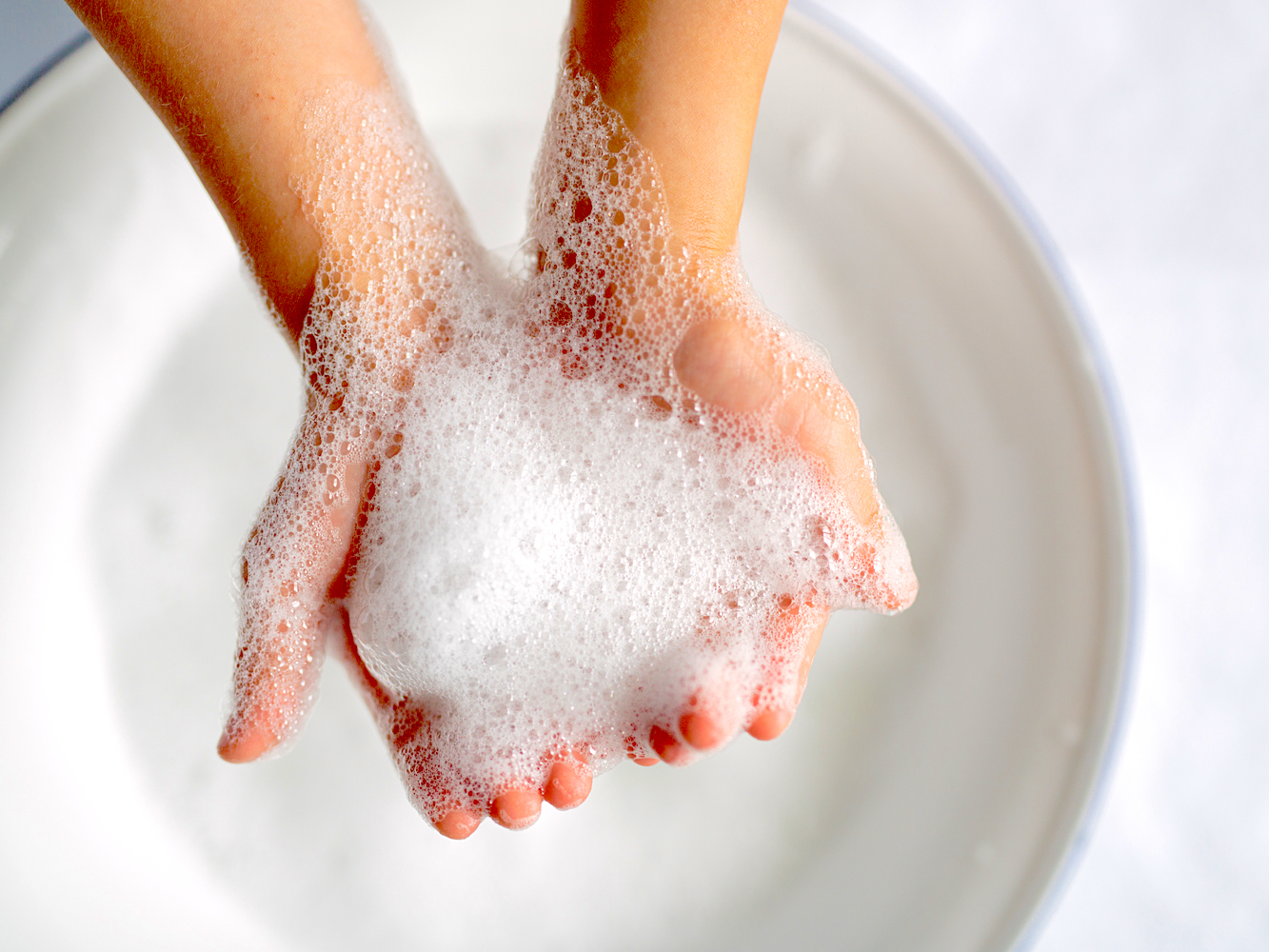- Wash your hands for as long as it takes to sing “Happy Birthday” twice.
- Don’t wash your hands for much longer than 20 seconds or with uncomfortably hot water because it can dry out your skin and leave you more prone to infection.
- Good-old-fashioned soap is more effective at keeping you well compared to anti-bacterial soap and similar hand sanitizers.
- This article was reviewed by Tania Elliott, MD, who specializes in infectious diseases related to allergies and immunology for internal medicine at NYU Langone Health.
- Visit Insider’s homepage for more stories.
Hand-washing takes less than half a minute, yet an estimated 97% of people do it wrong. Here’s how long you should wash your hands to prevent getting sick from harmful bacteria.
How long you should wash your hands
“It’s recommended that you wash your hands for the amount of time it takes to sing ‘Happy Birthday’ twice – about 20 seconds,” says family physician Dr. Sarah Borwein, MD. “Twenty seconds has been shown to be the minimum amount of time it takes to really remove germs.”
If you don’t wash long enough, even with soap, it could backfire. “Chances are that you are not effectively removing all the disease-causing germs that are lurking on them,” Borwein tells Insider.
On the flip side, washing for too long can cause more problems, especially if you are using harsh soap. “It can result in skin that is dry, cracked or even bleeds,” Borwein says. “This interrupts the barrier protective function of the skin and allows germs to enter the body.”
Washing your hands with cold or lukewarm water
A common misconception is that hot water is best to clean your hands.
"Many people believe that hotter water is better, but in fact, for the purposes of removing germs, there is no good evidence that water temperature matters," Borwein says. "Using hot water can dry the hands out and lead to skin damage, so the recommendation is to use cold or warm water."
As for the best method to effectively wash your hands, Borwein encourages rubbing your hands together "vigorously", and covering all surfaces: the back of the hands, wrists, between the fingers, and under fingernails where grime gets stuck.
Plus, if you actually scrub all the right surfaces, hitting that 20-second mark should be easy.
Anti-bacterial soap has no added benefits
There are no added benefits to using anti-bacterial soap versus the plain kind, according to the Centers for Disease Control and Prevention (CDC). In fact, Borwein warns that it's not even equally effective as an old-fashioned hand washing.
"Soap and water is actually the best way to remove germs from the hands. Hand sanitizer is a good alternative when soap and water is not readily available, or in some situations like hospitals and clinics, where you have to wash your hands a great many times per day and sometimes that isn't realistic."
Unlike washing hands with soap and water, sanitizer doesn't remove all harmful germs on your hands. "For example, Norovirus [which causes vomiting and diarrhea] is not effectively killed by hand sanitizer," Borwein tells Insider.
Plus, sanitizer won't work as effectively on visibly filthy hands because it won't remove dirt as easily. So make sure to always wash after doing dirty work like taking out the trash, outdoor activities, or handling greasy items.
"If using alcohol sanitizer, it should contain at least 60% alcohol," Borwein says. "And you should use enough - don't be stingy with it. A rough size guide is a dime-size amount."
Related stories about the flu:
- How the flu vaccine is made
- The flu vaccine is not 100% effective but you should still get it every year
- How to prevent the flu, according to doctors
- Yes, the flu is contagious. Here's when you're most likely to spread the virus
- You can't get the flu from the flu shot, but there are side effects
- How long the flu should last and when you should see a doctor
